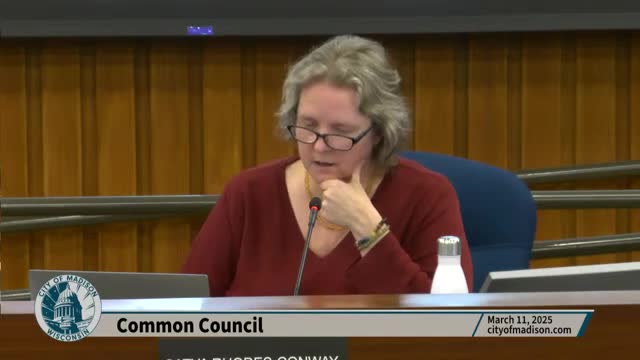Article not found
This article is no longer available. But don't worry—we've gathered other articles that discuss the same topic.
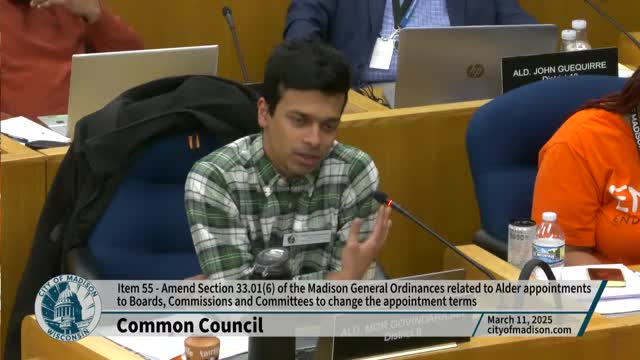
Council adopts removal-hearing procedures for alder misconduct after heated debate; retroactivity amendment fails
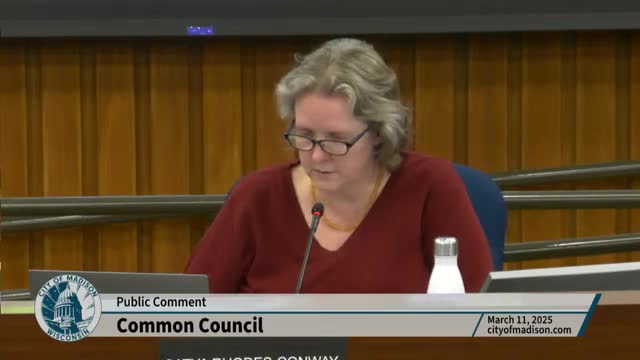
Council refers Leo Living Portage Road rezoning and rejects preliminary plat; zoning put on file without prejudice
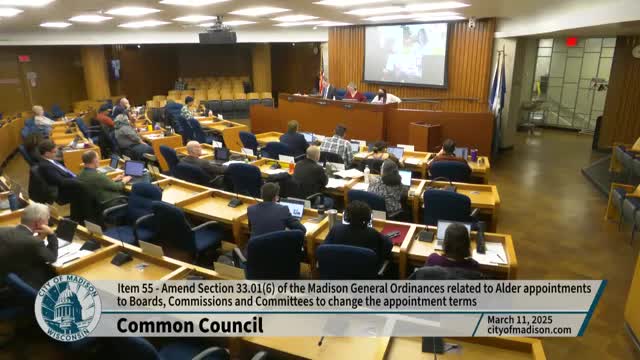
Council approves overhaul of city boards and alder appointment terms after debate over public-safety committee
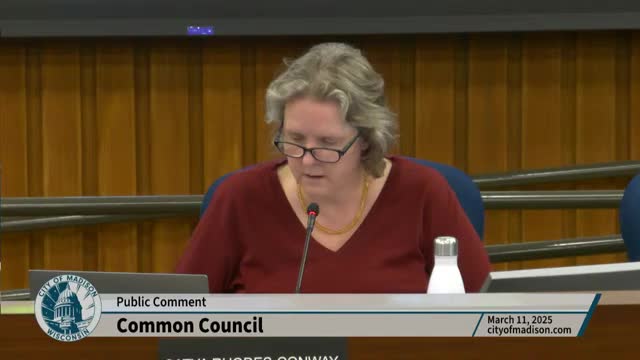
Council adopts Sauk Creek Corridor plan with amendment to favor naturebased bank treatments
